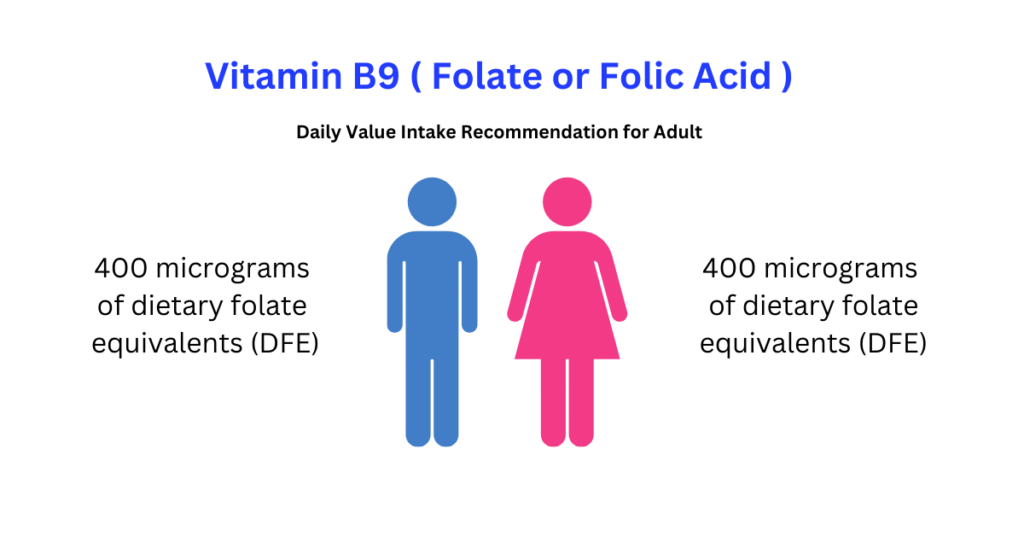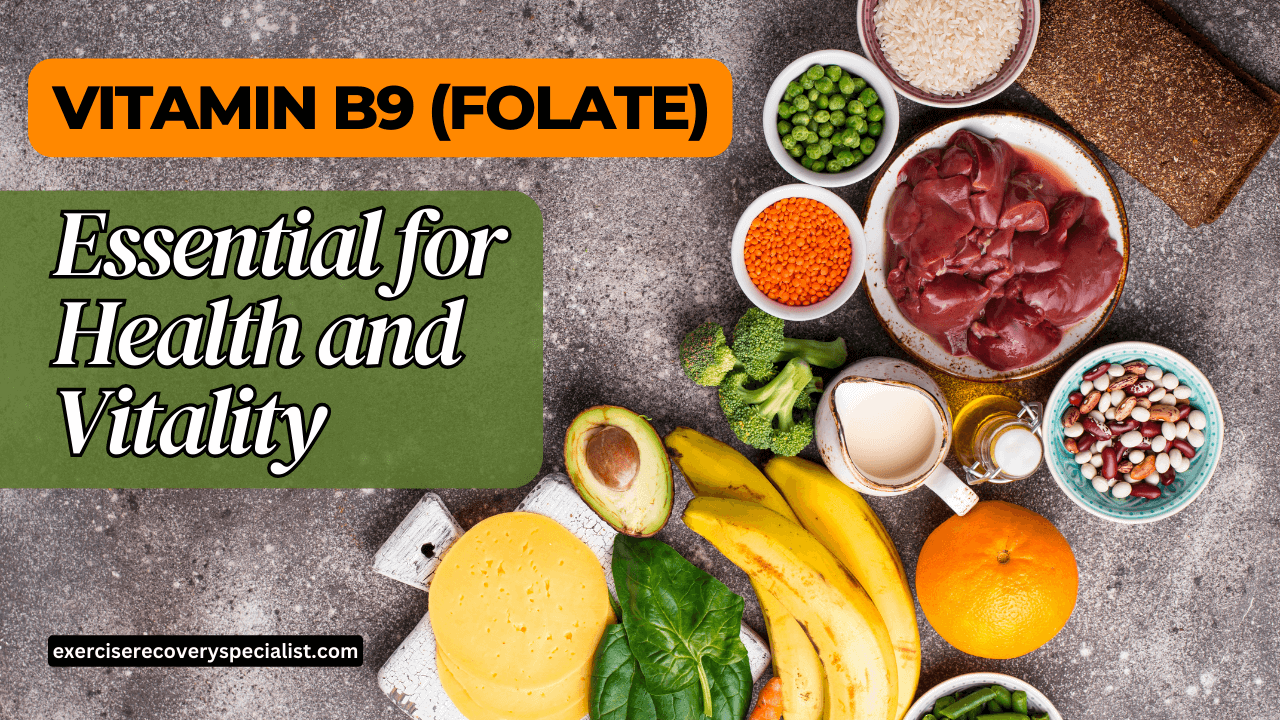Dive into the world of Vitamin B9, commonly known as folate or folic acid, a vital water-soluble vitamin that plays a critical role in DNA synthesis, cell growth, and tissue repair. Understanding the benefits of vitamin B9 and ensuring adequate intake through diet or vitamin B9 supplements is crucial for maintaining optimal health. Whether you’re exploring folate vitamin B9 for its overall health benefits or specific needs such as during pregnancy, this guide will illuminate the significance of this essential nutrient.
Rich Dietary Sources of Folate
Folate, the natural form of vitamin B9, is abundant in various foods, providing a pathway to meet the recommended daily intakes:
- Spinach (1/2 cup, cooked): Approximately 130 micrograms of DFE
- Lentils (1/2 cup, cooked): Approximately 180 micrograms of DFE
- Black beans (1/2 cup, cooked): Approximately 128 micrograms of DFE
- Avocado (1 medium): Approximately 120 micrograms of DFE
- Asparagus (1/2 cup, cooked): Approximately 134 micrograms of DFE
- Beets (1/2 cup, cooked): Approximately 68 micrograms of DFE
- Brussels sprouts (1/2 cup, cooked): Approximately 78 micrograms of DFE
- Sunflower seeds (1 ounce): Approximately 66 micrograms of DFE
- Broccoli (1/2 cup, cooked): Approximately 52 micrograms of DFE
- Oranges (1 medium): Approximately 30 micrograms of DFE
Incorporating these folate-rich foods into your diet is a straightforward way to ensure you’re getting enough of this vital nutrient.
Understanding Folate Deficiency and Supplementation
A folate deficiency can lead to significant health issues like anemia, fatigue, and neurological problems. It’s especially important for expecting mothers to get enough folate to prevent neural tube defects in their babies. For those who struggle to get enough folate from their diet, healthcare professionals often recommend folic acid supplements as a reliable source of vitamin B9.
Navigating Interactions and Absorption of Folate
Navigating Interactions and Absorption of Folate” involves understanding how various factors can influence the body’s ability to absorb and use folate (Vitamin B9), which is critical for numerous bodily functions including DNA synthesis, cell growth, and repair.
Factors Affecting Folate Absorption:
- Digestive Health: The absorption of folate primarily occurs in the small intestine. Therefore, conditions affecting the gut, such as Celiac disease or Crohn’s disease, can impair folate absorption.
- Genetic Factors: Variations in genes, like the MTHFR gene, can affect how the body processes folate. Certain genetic mutations may reduce the efficiency of converting folate to its active form in the body.
- Age and Life Stages: Age can affect absorption, with the elderly potentially having reduced absorption capabilities. Additionally, pregnancy increases the demand for folate, making effective absorption more crucial.
- Alcohol Consumption: Excessive alcohol intake can interfere with folate absorption and also increases the body’s requirement for this vitamin.
- Dietary Choices: The presence of certain foods and nutrients can influence folate absorption. For instance, foods rich in Vitamin C can protect folate from oxidation and help your body make better use of it.
Medication Interactions with Folate:
- Anticonvulsants: Drugs used for seizure disorders, like phenytoin and valproate, can decrease folate levels in the body.
- Antibiotics: Some antibiotics, especially those affecting gut bacteria, can interfere with folate absorption.
- Methotrexate: Used for cancer and some autoimmune diseases, methotrexate can inhibit the body’s ability to use folate.
- Oral Contraceptives: Some studies suggest that oral contraceptives may affect folate metabolism, although the clinical significance of this is still being researched.
- Sulfasalazine: Used in inflammatory bowel disease, this medication can interfere with folate absorption.
Maximizing Folate Absorption:
- Balanced Diet: Consuming a diet rich in natural folate sources, like leafy greens, legumes, and fortified foods, is essential.
- Supplements: For those unable to meet their folate needs through diet alone, supplements can be beneficial. The supplemental form, folic acid, is more bioavailable and may be recommended especially during pregnancy.
- Regular Health Checks: Regular monitoring of folate levels, especially in individuals on medications that interfere with folate metabolism or absorption, is important.
- Lifestyle Adjustments: Reducing alcohol consumption and maintaining good digestive health can support better folate absorption.
Understanding these aspects is vital for ensuring adequate folate levels in the body, which is essential for preventing health issues like anemia, certain birth defects, and may have implications for heart health and mood disorders
Conclusion
In sum, vitamin B9 is a powerhouse nutrient that supports various functions in the body. Whether you’re focused on vitamin B9 benefits for overall health or specific conditions, understanding how to incorporate it through diet and supplements is key to maintaining your well-being.






